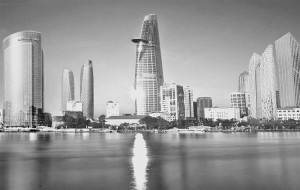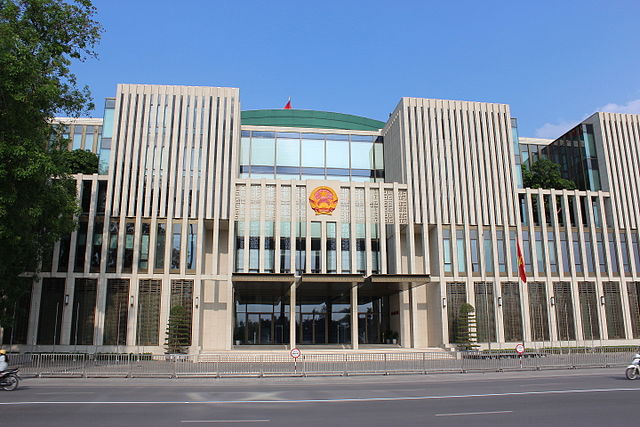By Hoang Nguyen Ha Quyen, partner, LNT & Partners
E: quyen.hoang@lntpartners.com | www.lntpartners.com
———-
Disclaimer: This article is for information purposes only. Its contents do not constitute legal advice and should not be regarded as detailed advice in individual cases. For legal advice, please contact our Partners.
———-
During the past eleven years, Decree 23/2007/ND-CP dated 12 February 2007 (“Decree 23”) has been found to be a barrier to the trading activities of foreign investors in the Vietnam market, especially in the retail industry.
Recently, the Vietnamese government has decided to replace Decree 23 with Decree 09/2018/ND-CP dated 15 January 2018 (“Decree 09”) which has brought significant changes, specifically eliminating a number of restrictions previously contained in Decree 23. Nevertheless, Decree 09’s scope of application has been extended to some other business sectors.
Specifying and expanding entities affected
Unlike under Decree 23, where the scope of application was amorphous because the authorities had ample opportunity to use their own discretion in its application (any foreign invested enterprise (“FIE”) regardless of foreign owned capital ratio or investment structure would have to comply), Decree 09 has provided clear instructions on the subject of application, including: (i) legal entities with direct investment from foreign investors, regardless of capital ratio; (ii) entities having at least 51% of their charter capital owned by other FIEs in which foreign investors directly holds 51% or more of its charter capital, or a partnership that has a majority of partners who are foreign individuals.
Once the scope of application is defined, entities that want to be involved in the following trading activities would have to obtain a Business License, also known as Trading License for: (i) retail sale of goods; (ii) import and wholesale of lubricant products (oils and greases); (iii) logistics services, excluding those for which Vietnam has committed to open the market in international treaties (of which Vietnam is a member); (iv) goods leasing activities, excluding finance leasing and leasing construction equipment with operator; (v) trade promotion activities, excluding advertising; (vi) commercial intermediary activities; (vii) e-commerce services; and (viii) services for arranging tenders/bids for goods and services.
It appears that Decree 09 has extended the scope of application to other business sectors which were not previously governed under Decree 23, such as: goods leasing activities, e-commerce services and services for arranging tenders/bids for goods and services. Providers of the mentioned services are now required to obtain a Trading License, which requires approval from the Ministry of Industry and Trade (MOIT). This new requirement may affect the operations of many e-commerce platform services which are currently operating in Vietnam.
Barrier on trading rights is lifted
Despite the fact that the scope of Decree 09’s application has been extended to additional sectors, Decree 09 is welcomed for the removal of the requirement for a Trading License for the export, import, and wholesale distribution of many types of goods. In particular, only FIEs involved in the trading of lubricant products (i.e., oils and greases) are required to obtain a Trading License for import and wholesale.
As a result, beginning on January 15, 2018, FIEs are only required to add “import, export and wholesale distribution” functions to their IRCs and ERCs in order to conduct such business. Trading Licenses will not be required for FIEs as they were before for the same trading activities. However, FIEs of the same but wish to carry out retail distribution will have to follow the same license requirements under Decree 23.
FIEs involved in wholesale distribution have taken the removal of such requirements as excellent news. There is no longer a waiting period for a Trading License before shipping different products[1] and no more HS Code on items to be imported, with many more opportunities in the future.
Retail Outlet License and Economic Needs Test (“ENT”)
Each and every FIE who wishes to open any retail outlet, even the first one, have to obtain a Trading License and Retail Outlet License.
The economic needs test (ENT) required under Decree 23 is still applied for the second outlets and those after (Additional Retail Outlet) which: (i) have areas from 500 square meters; or (ii) are established outside shopping malls; or (iii) are categorized as minimarts or convenience store. This means investors in those cases will need to pass the ENT and obtain a Trading License and appropriate Retail Outlet License for each outlet to be established inside Vietnam.
Important highlights for owners of franchises
Decree 09 provides clearly that any outlet established under the same name or same trademark with another retail outlet in Vietnam owned by any other FIEs shall be treated as an Additional Retail Outlet and need Retail Outlet License for operation. As a result, the franchising model which is currently used by some giant retail chains or chain stores might have to pass ENT to obtain relevant Retail Outlet License.
The People’s Committee at the province level would be the authority that would consider whether an outlet passes an ENT or not. This means that for such outlets, the establishment application must be approved by the People’s Committee at the province level and the MOIT.
HS Codes in the Trading License
Another interesting point under Decree 09, which is critical to all importers, is the new template for Trading Licenses and Retail Outlet Licenses. According to the new template and guidance provided under the Decree 09, HS Code might not be included in the Licenses while previously it was clearly required in the template of the same. It means that the names of the trading products will be listed in the Licenses while the HS Code of the products might be no longer referred to in the Licenses.
During the past eleven years since the enactment of Decree 23, the HS Code has been an important factor slowing down the investment process due to the complexity caused by these codes (e.g., discrepancy in HS codes referred to for imported items between IRC, Trading License and documents prepared for customs clearance, lengthy codes in the IRCs of FIEs, different import duties to be applied, and many other issues). However, its removal at the beginning stage of the new Decree may also cause difficulties for FIEs because Customs and other authorities might challenge FIEs on their trading rights.
Listing the names of the goods might not be as convenient and accurate as using the HS Code. Even the DOIT has not reached consensus as to how to name the goods in the Trading License. The interpretation of it, unfortunately, is subject to the sole discretion of the DOIT, especially the officer in charge. As a consequence, this can cause inaccuracies. Take the example of a FIE that trades facial brushes. These brushes belong to HS Code 9603, which is described as “Brooms, brushes (including brushes constituting parts of machines, appliances or vehicles), hand-operated mechanical floor sweepers, not motorised, mops and feather dusters; prepared knots and tufts for broom or brush making; paint pads and rollers; squeegees (other than roller squeegees)”. If the officer in charge does not understand the business of the FIE, he/she might put the name of the goods as “brooms” instead of “brushes”. However, because the FIE sells brushes, not brooms, another relevant authority may challenge the FIE for not having the proper Trading License. The FIE might then have to apply to amend its Trading License to be in line with its actual business.
Therefore, at present, FIEs should be careful and clearly describe their goods when applying for Trading Licenses. More detailed guidance from the relevant authorities is essential to avoid problems regarding this advanced and evolving regulation.
Conclusion
In conclusion, Decree 09 does provide a better legal framework to resolve the ambiguous procedures for foreign investors and FIEs pertaining to trading and trade-related activities under Decree 23. However, as this Decree has just been issued, there might be challenges for both FIEs and licensing authorities to fully understand and implement in practice.
[1] Under Decree 23, Trading Licenses provide a list of products under their HS Code which are allowed to be imported into Vietnam for wholesale or retail distribution. If the entities wish to add new products to the list, the Trading License needs to be updated and the MoIT’s approval is required. (Back to text)



















